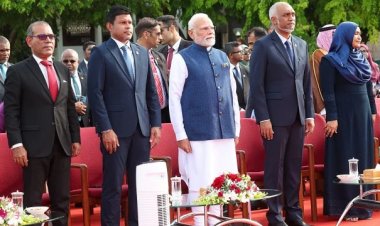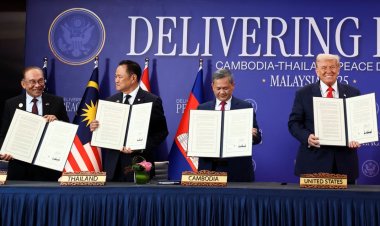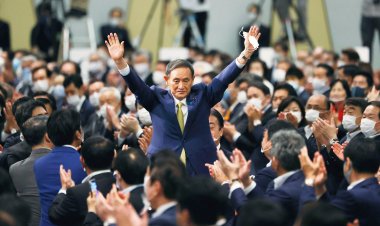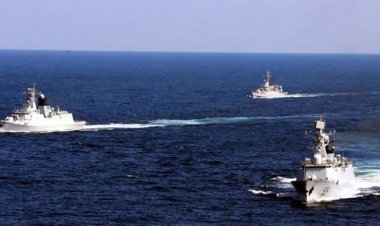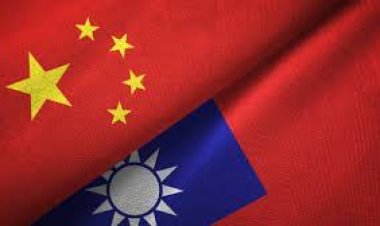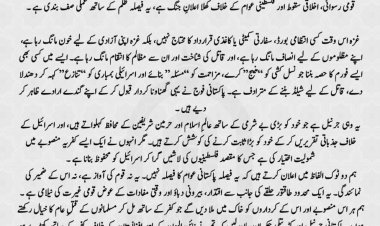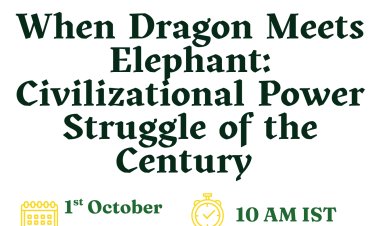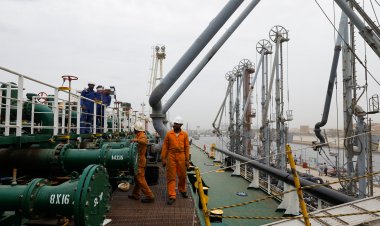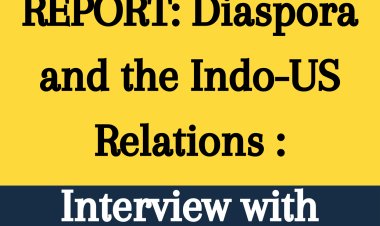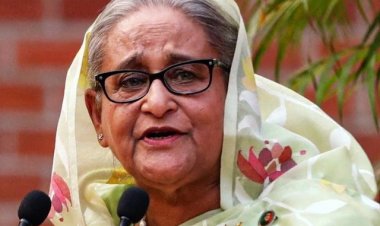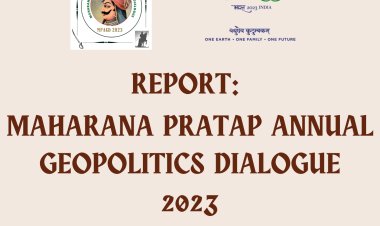Should India abandon its 'One China' policy?
The Indian diplomatic establishment has historically looked at Taiwan through the 'China' prism. However, over the years, those relations have changed and evolved. A star-studded panel of experts from India and Taiwan was a part of a webinar organized by the Usanas Foundation titled 'Rethinking India's Taiwan policy: Prospects for deepening Indo-Taiwan cooperation.' The following article looks at the main takeaways from the event.
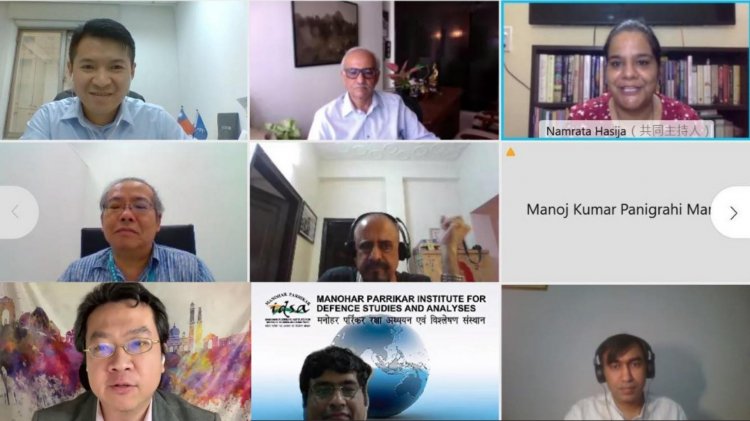
By Usanas Editorial Team
The Indian diplomatic establishment has historically looked at Taiwan through the ‘China’ prism. India was one of the first Asian capitals to recognize the People’s Republic of China and its One China Policy (OCP) in the 1950s. Due to this—relations with Taiwan remained frozen throughout the Cold War—New Delhi did not accord any diplomatic recognition to Taiwan and even prohibited senior officials from engaging with their counterparts in Taipei. However, the collapse of the Soviet Union and the end of bipolarity changed the strategic landscape and compelled India to revisit its foreign policy fundamentals. The adoption of a “Look East” policy in 1991 refocused New Delhi’s attention towards East Asia, and in 1995 a diplomatic breakthrough was achieved when Delhi and Taipei established complementary representative offices. Since then, a series of steady developments in India-Taiwan relations indicate that although India continues to adhere to the ‘One China Policy’, it does not necessarily strictly follow the ‘One China principle.’ It is primarily the fear of the adverse effect on India-China relations that India formally acknowledges that there is only one Chinese government. However, the changed geopolitical scenario and an increasingly aggressive China has forced India to rethink its policy and recalibrate ties with Beijing. There is a greater appreciation towards Taiwan, a natural partner in many ways, as both countries share democratic values, respect for human rights, the rule of law, and mutually recognize the benefits of rules-based international order. It is high time that relations with Taiwan be pursued on their own “merit”—both strategic and commercial—and Taipei is not merely viewed as a ‘card’ to be played every time China provokes India.
Against this backdrop, the Usanas Foundation organized a timely and relevant international roundtable discussion on 21st May on ‘Rethinking India's Taiwan policy: Prospects for deepening Indo-Taiwan cooperation'—with a star-studded panel of eminent personalities from both India and Taiwan. The event was moderated by Namrata Hasija, Research fellow, Centre for China Analysis and Strategy and President, Taiwan Alumni Association, India, who made valuable and insightful comments over the course of the discussions.
The main takeaways from the webinar were as follows.
- Chinese expansionism and totalitarianism is a threat to all of humanity. The past year has been a testament to how India and Taiwan face the direct impact of this aggression. Chinese transgression in eastern Ladakh martyred 20 Indian soldiers. PLA aircraft have been flying menacingly around Taiwan’s air space almost daily throughout the last year, sometimes launching multiple sorties on the same day. India and Taiwan must work together to face Chinese aggression, which Western countries must support.
- India must recognize the importance of allowing high-level contacts with Taiwan in fostering relations. There should be a regular comprehensive dialogue between India and Taiwan.
- A major deterrent in India-Taiwan relations has been the significant gap in understanding each other's societies and culture as a significant impediment. It was suggested that a "bottom to top" approach be followed to foster these ties, especially through student exchange programs, think tank collaborations and more people-to-people contacts.
- The important role played by Taipei in the Indo-Pacific was also highlighted, especially since India is an active player in the region. Enhancing cooperation between India and Taiwan is not only beneficial from a bilateral standpoint but for protecting the rules-based order in the Indo-Pacific region as a whole
- Several areas for future cooperation were identified in the military and security domain and education, health, and economy. There needs to be deeper cooperation in logistical agreements—as both, the countries use similar US equipment. Intelligence sharing was another important area identified for collaboration.
In his opening remarks, Mr Krishnan Verma discussed the larger strategic imperatives necessitating a deeper Indo-Taiwan relationship. Both India and Taiwan—located on the opposite side of China—have faced unprecedented intimidation and coercion and aggressive behavior from China. China has blatantly violated painstakingly negotiated protocols with both countries, intending to intimidate both countries. He said, cooperation between India and Taiwan, as two leading democracies, can usher in a new equilibrium and stability in navigating global commons, especially in the Indo-Pacific region.
Indo-Taiwan relations have undoubtedly evolved since 1995, which have widened over the years to include economic and cultural exchanges. Nevertheless, the full potential of bilateral relations has not been achieved. Dr Tien-sze Fang identified two areas where bilateral relations need to be expanded—traditional military cooperation and economic collaborations. Indeed, in the trade and investment sector, Indo-Taiwan relations are lagging. Although India’s vast market provides Taiwan lucrative opportunities for investment, Taiwanese investment has been minimal, standing at about $1.09 billion. There are just about 200 Taiwanese companies in India, compared to nearly 100,000 in China. Nearly one million Taiwanese nationals work out of China; in sharp contrast, there are less than 1,000 Taiwanese citizens in India. These numbers highlight the need for greater economic collaboration between the two countries. Having faced the brutal brunt of Chinese aggression, he suggested establishing China study groups and joint research to understand Chinese motivations and intentions regarding India and Taiwan.
To a large extent, both India and Taiwan have overcome the Cold War-era baggage in dealing with each other and are much more comfortable in bilateral interactions. Dr Prashant Kumar Singh pointed out how India's changed narrative towards the 'One China' policy is largely responsible for this. In the 1950s, India’s support for One China largely stemmed from moral and ideological considerations; now, it is more a question of “strategic expediency.” Taking the example of U.S.-Taiwan relations, he highlighted how the United States, especially under the Trump Administration, was engaging with Taiwan to effectively denounce the One China policy while also engaging with China. Dr Prashant Kumar Singh said, “The governments and think tanks of both the countries are not discussing security matters closely as they should be doing, introducing non-traditional security as a topic for conversations might provide further push to the relationship. ” Pointing out that India’s hesitance towards sending serving military officials on the grounds of possible provocation of China is justified, he suggested sending a retired high-ranking retired official as a military attaché as a suitable alternative. This would enable high-level engagement without giving Beijing grounds to oppose such a move on violating the One China principle.
Both India and Taiwan remain hostage to negative stereotypes about each other. Dr Roger Liu spoke about how the negative coverage of the Covid-19 pandemic has further aggravated these stereotypes in Taipei. He suggested that the only way to overcome this obstacle is people to people collaboration.
Few would disagree that Taiwan has established itself as a significant player in the Indo-Pacific region, separate from China. Dr Ming-Shih Shen highlighted how, in the future, India and Taiwan could take many steps to enhance national security cooperation through the military mandarin course, joint combat training because some weapon systems are similar in India and Taiwan, such as the Apache helicopter. “We can also see that the Indo-Sino conflict in high altitudes uses special fighting forces, and therefore both countries can also cooperate among their special forces and disaster training,” Dr Shen said
“Why does India need to support Taiwan?” was the question addressed by Dr Chih-Yung Ho. “A century ago, India was threatened by British imperialism and now Taiwan faces a similar threat from an expansionist and aggressive China,” he said. He highlighted the deep religious connection the two countries shared with the “same historical and cultural common ground and shared values” and the need to deepen them. According to him, what Taiwan needs from India is support to participate as an independent actor in the international community. Taiwan does not want to be just seen as a card to be used against China. “Only peace and stability in the strait can guarantee that Taiwan remains safe, not tension and hostility,” Dr Ho said.
COVID-19 has exposed the lacuna in public health infrastructure across countries and the need for global cooperation to deal with pandemics, which don’t respect national boundaries. Taiwan’s handling of the pandemic and its support to many other countries underlines the need to deepen healthcare cooperation. Taiwan has been vocal about its desire to cooperate with India to boost its health infrastructure. Taiwanese NGO’s have come forward and supplied some lifesaving drugs and medical equipment’s to help India in its fight against the deadly second wave. Taiwan has established itself as a premier global hub for education, yet Indian students in Taiwan are woefully low. In 2019 there were only 3,000 Indian students in Taiwan. Taiwan has set up a target to increase Indian students in its Masters and PhD programs by around 20% in the upcoming years. Despite Taiwan providing a wide range of scholarships for Indian students, the lack of information about the same has deterred cooperation in this area. In the future, in addition to the areas of cooperation identified by our experts, health and education are emerging as necessary areas to expand cooperation.
The discussion by the experts made it abundantly clear that even if India cannot discard, it must rework its One China policy to enable enhanced bilateral and multilateral cooperation with Taiwan.
Disclaimer: All opinions expressed in the webinar belong to the speakers and are not reflective of Usanas Foundation.

